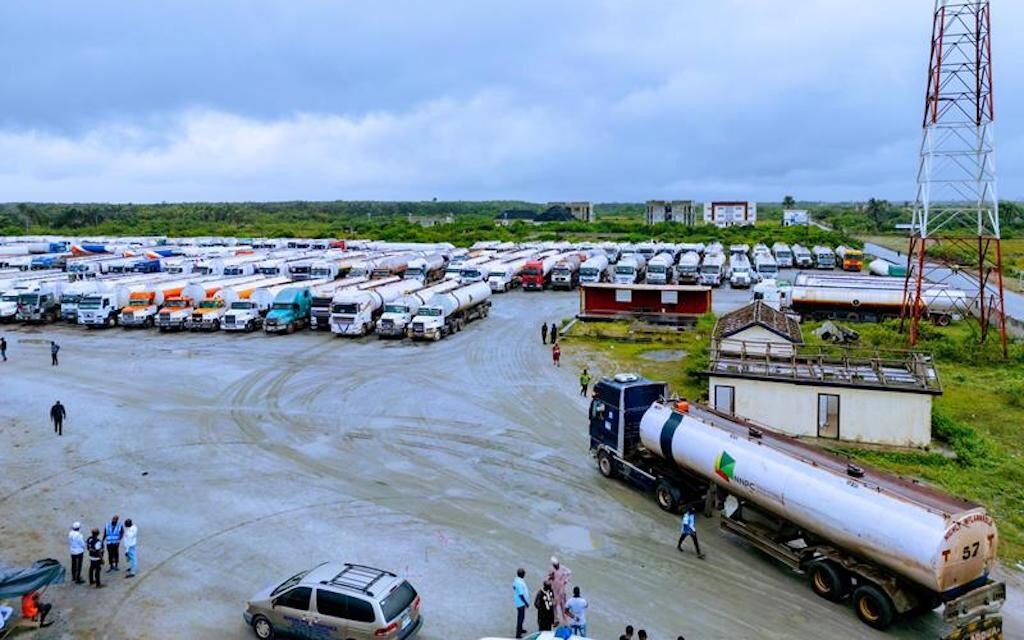In the bustling offices of Lagos Island, the chatter is no longer about the stock market or the naira. It is about risk, resilience, and the future of Nigeria’s insurance industry. When President Bola Ahmed Tinubu signed the Nigerian Insurance Industry Reform Act (NIIRA) 2025 into law earlier this year, few doubted it would jolt the sector. What was less certain was how deeply it would reshape not just insurers but the wider economy.
For the first time in decades, the insurance industry finds itself at the centre of Nigeria’s economic reform agenda. With sweeping provisions that consolidate outdated laws, introduce risk-based capital requirements, expand compulsory insurance, and tighten consumer protection, NIIRA has been described as both a stress test and a lifeline.
“An insurer’s strength is closely linked to the economic and regulatory context in which it operates,” said Abimbola Adeseyoju, Managing Director of DataPro Limited, a Lagos-based credit rating and risk management agency.
He added: “The NIIRA 2025 has significantly changed this context by consolidating outdated laws and mandating risk-based capital.”
Adeseyoju, whose firm has tracked Nigeria’s financial landscape for decades, believes the reforms will push insurers to either transform or perish. “This is not just about raising capital,” he said. “It is about discipline, sustainable profitability, and building institutions that can stand the test of shocks.”
The New Rules of Survival
Under NIIRA, insurers now have just 12 months to comply with stiffer capital requirements. Analysts predict a wave of mergers and acquisitions as smaller firms scramble to meet the thresholds. Larger operators with deeper balance sheets may consolidate their dominance, but size alone will not guarantee survival.
“Smaller insurers that carve out niches or build loyal customer bases can still thrive,” Adeseyoju noted in the DataPro’s September Report, a monthly analysis of the Nigerian business and economy. He added that “What the law does is separate discipline from indiscipline, strength from fragility.”
Perhaps more striking is the expansion of compulsory insurance. Beyond motor and marine, group life assurance, public buildings, and government assets must now be insured. That expansion could open new revenue streams for companies nimble enough to capture them.
But the real pressure lies in underwriting discipline. “Timely claims settlement will now be as important as writing policies,” Adeseyoju said. “Customers will reward insurers that honour their obligations. Regulators will penalise those who fail.”
Digitisation adds another twist. While Insurtech promises efficiency and wider access, it also introduces risks, cybersecurity breaches, data leaks, and system failures. NIIRA places clear responsibility on boards and management to balance innovation with strong governance.
Trust as Currency
If there is one phrase Adeseyoju repeats, it is this: “Trust is currency.”
“In the world of business, trust is everything. Investors, lenders, regulators and partners all want assurance that a company is financially sound and capable of meeting its obligations. A strong rating signals stability, discipline and resilience. A weak one raises doubts and closes doors,” he explained.
This principle applies not only to insurers but across sectors. Nigeria’s ginger farmers in Kaduna learned that lesson the hard way in 2023, when a fungal disease wiped out nearly 95 per cent of yields. Once the world’s second-largest producer, the country’s output collapsed, costing farmers over n12 billion, crashing exports, and pushing prices out of reach locally.
The crisis was not just agricultural, it was financial. “There was no safety net. No insurance. No diversification. No resilience,” Adeseyoju said. “It exposed how fragile industries can be when risk management is ignored.”
Lessons from the Ginger Crisis
In Kachia, Kaduna State, where ginger farms stretch over rolling hills, the devastation was visible: empty barns, idle trucks, and farmers drowning in debt. International buyers turned to India and China, while local traders lamented the lost harvest.
From a credit analyst’s view, the ginger crisis was a textbook case of unmitigated risk: overdependence on a single crop, weak infrastructure, and little access to insurance. “The lesson is clear,” Adeseyoju argued. “Profitability is important, but resilience and risk management sustain industries through storms.”
His message resonates far beyond agriculture. It underscores why NIIRA matters, not as a narrow law for insurers, but as a template for resilience in an economy prone to shocks, whether from global oil price swings, pandemics, or climate change.
Global Ripples, Local Realities
Nigeria does not exist in a vacuum. Former U.S. President Donald Trump’s tariff wars with China and Europe still reverberate in emerging markets, driving up borrowing costs and squeezing developing economies. Nigeria, still overly reliant on crude oil exports, feels every ripple.
“In this world of interdependence, external shocks travel fast,” Adeseyoju observed. “Our vulnerability comes from concentration, too much dependence on one sector, one commodity, one policy. The answer is diversification and resilience.”
Insurance reform, in his view, is one brick in that foundation. By strengthening capital buffers, mandating discipline, and expanding coverage, NIIRA aims to create an industry that cushions shocks rather than amplifies them.
The Act also empowers the National Insurance Commission (NAICOM) with greater supervisory authority. Insurers must now submit more frequent and transparent reports, while boards are held personally accountable for lapses.
“Those companies that combine robust capitalisation, sustainable business models, prudent risk management, and strong governance will stand out as credible and trustworthy players,” Adeseyoju said.
But governance challenges are not confined to insurance. Across corporate Nigeria, regulators are pushing for higher disclosure standards, stronger compliance, and better risk controls. The underlying principle is the same: survival in a volatile economy requires more than ambition—it requires structure and credibility.
DataPro’s Kigali Master Class
To help businesses adapt, DataPro is taking the conversation beyond Nigeria’s borders. Later this year, the firm will host a Master Class in Kigali, Rwanda, on compliance, enterprise risk management, and financial analysis.
“This is more than training,” Adeseyoju said. “It is about equipping leaders with practical tools, stress testing, red-flag analysis, ESG oversight, compliance audits, that build resilient organisations. We want companies that last.”
The Kigali choice is symbolic. Rwanda, often cited as a model for governance and institutional reform in Africa, provides a fitting backdrop for conversations about building trust and resilience.
Even as insurers digest NIIRA, Nigeria’s capital markets are gaining new recognition. Dr. Emomotimi Agama, Director-General of the Securities and Exchange Commission, was recently elected Vice Chairman of the Africa/Middle East Regional Committee of IOSCO, the global securities watchdog.
The role gives Nigeria a voice in shaping international standards on securities regulation, innovation, and investor protection. It signals, Adeseyoju said, that resilience is not just a local requirement but a global currency.
For Nigeria’s insurers, the countdown has begun. Twelve months to raise capital, strengthen governance, and rebuild trust. For Nigeria’s farmers, traders, and corporates, the ginger crisis and other shocks remain reminders of why resilience matters. For policymakers, the challenge is to translate laws into enforcement, and enforcement into confidence.
“The NIIRA 2025 sets a higher standard for Nigeria’s insurance industry,” Adeseyoju concluded. “Those companies that embrace discipline, transparency, and sound risk management will not just survive, they will lead. And if we get this right, insurance will no longer be a backwater. It will be a pillar of Nigeria’s economy.”
The post Nigeria’s Insurance Shake Up: Building Resilience in Age of Risk appeared first on THISDAYLIVE.



